Image: canva.comMusic artists are now able to get access to AI-powered platforms like iZotope, Amper Music, and many others that can help to keep the whole process of music production under a common shade. These platforms are providing unprecedented convenience and ease in the process of music making for both professional artists and beginners in the industry who are still trying to establish themselves. Not just music artists, but AI is also influencing how listeners are consuming music through tailor-made musical experiences with the help of AI-powered algorithms.
Other than music production and its consumption, AI is also helping to strengthen A&R strategies along with marketing and promotion, which ensures a fair chance for all kinds of music artists. It is helping in finding young musical talents while making music more interactive for all. The live concert culture is adapting to AI benefits with real-time music adaptation and interactive elements. It is safe to say that AI is bringing a revolution to the modern music industry. Let’s take a better look.
10 Ways AI Revolution is Transforming the Modern Music Industry
-
Music Composition (Automated)
There are plenty of AI-driven platforms like AIVA, Amper Music, Jukedeck, and many others that have brought a huge change in the process of the music creation. These tools are specially designed to apply deep learning methods to composition rules and music theory, which allows generating complete compositions with more effectiveness and ease. Music artists are able to provide specified inputs on the aspects of style, mood, genre, duration, and others. This allows opening new opportunities in music production, and non-musicians are able to get through experimentation without the help of a record label. This allows for the broadening of the creative exploration of music while challenging the traditional notions of music production, creativity, and authority.
Some Examples:
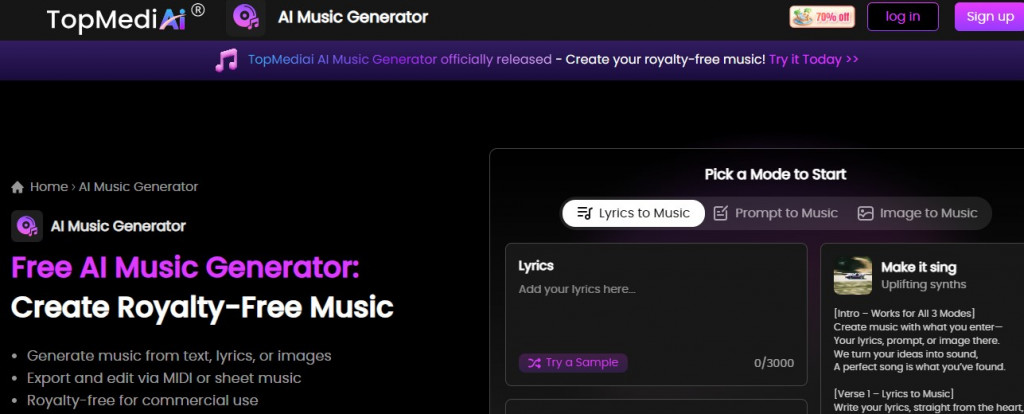

Amper Music – This tool allows users to create music based on specific mood, duration, genre, and each composition comes out to be unique. It can generate fully arranged tracks that can be personalized further based on the requirements of the artist.
AIVA (Artificial Intelligence Virtual Artist): AIVA gained much attention among composers and publishers of music as it specializes in classical and cinematic music creation through deep learning methods.
-
Improved Music Production
AI has helped to improve music production exponentially with its effectiveness and quickness. With the benefits of automated mixing and mastering, even independent artists are able to drop full-fledged album projects. These AI-powered tools are able to analyze audio tracks based on algorithms that allow optimizing tracks, balancing mixes, and applying mastering methods to offer a superior sound quality. As a result, the production process of music has sped up greatly. It is offering an opportunity for small studios and emerging artists with limited budgets.
Some Examples:
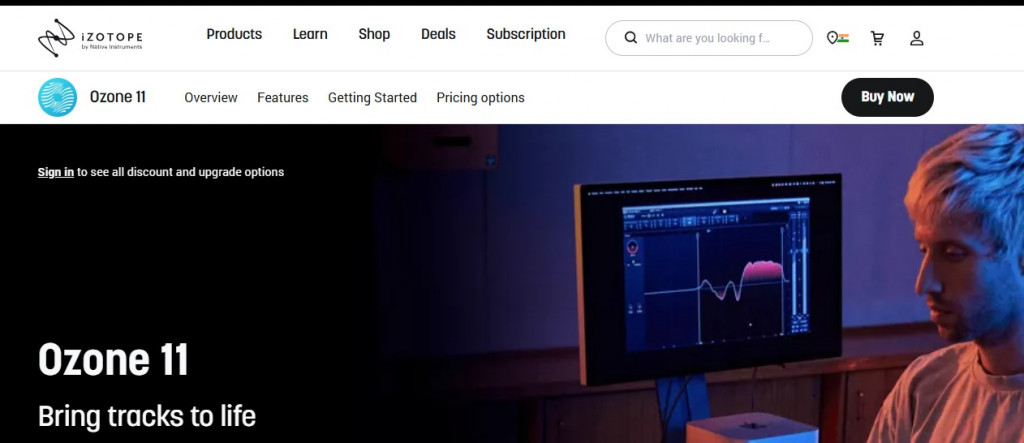

Landr – This tool can quickly analyze a track and helps to apply adaptive techniques in order to improve the sound design and audio quality. It is making mastering accessible for indie artists with professional needs.
Ozone by iZotope – Ozone is comprised of advanced machine learning, which allows it to make recommendations for mastering based on the sonic profile of the song. This tool can streamline the whole mastering process for all kinds of music and for multiple tracks.
-
Personalized Music Experience for Everyone
AI and the influence of online music streaming platforms have revolutionized the way people used to listen to music. Currently, AI allows for the analysis of a huge amount of data on the user preferences of music and their listening behaviors. The advanced algorithms help to create personalized playlists based on each listener and their individual music tastes. Other than providing a satisfactory sonic experience, it is improving music discovery and offering fruitful opportunities for emerging artists to reach a new audience base. Currently, these personalized playlists are normalized, which has made artists and labels adapt to AI to survive in the competitive market for music.
Some Examples:
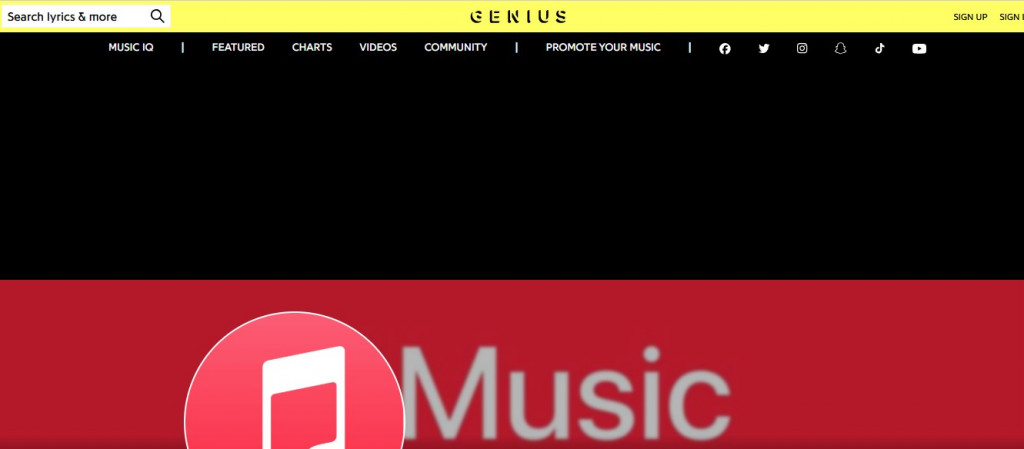

Discover Weekly by Spotify – Spotify utilizes AI to create personalized playlists for each user every week, that is made based on their previous listening habits. As a result, it includes a similar taste.
Genius by Apple Music – The special feature by Apple Music helps to suggest music by analyzing the library for each user. It uses sophisticated algorithms to match the patterns.
-
Music Adaptation in Real-time
Music or audio plays a vital role as an interactive medium in video games and other artificially created environments. AI is bringing more convenience in the field with real-time music adaptation, which can change the narrative. Such adaptive music can provide a more emotional, engaging, and immersive experience. It aligns musical elements with the on-screen action or activities. This technology is also projecting a major change in entertainment media by making them more interactive and responsive. As a result, viewers are also becoming a part of the content.
Some Examples:
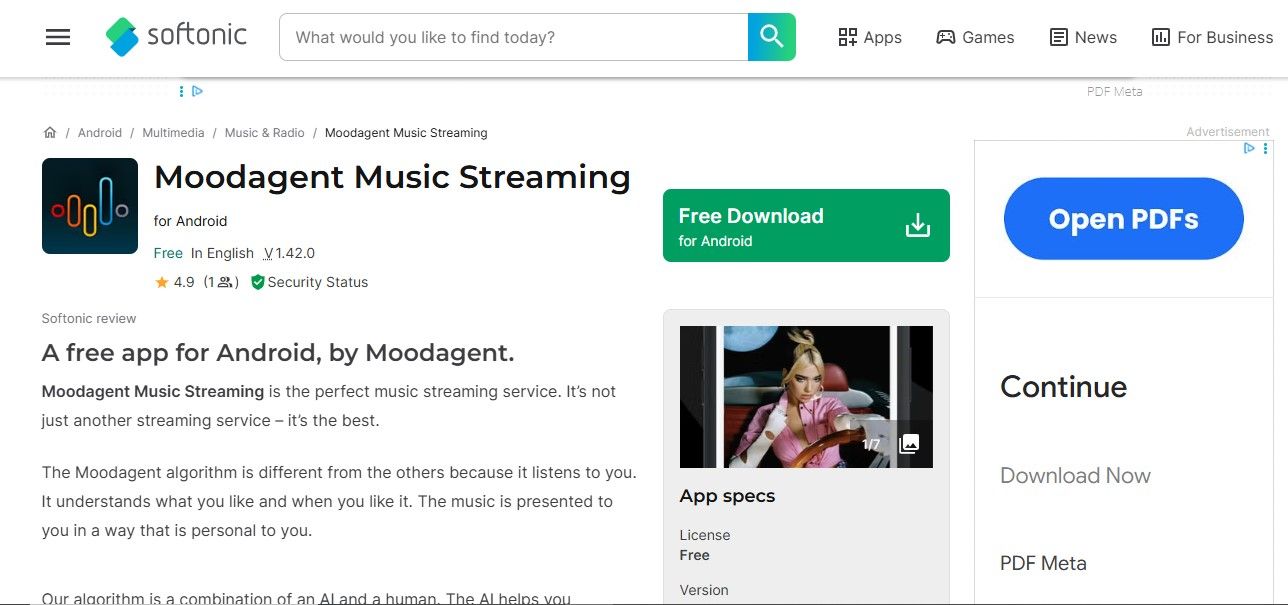

Video Games – Many modern games like “No Man’s Sky” have adapted to AI-powered music, which adapts according to the actions of the player and the environment of the game. It helps to make it more immersive, along with an engaging auditory experience.
Moodagent – This streaming service is best known for adapting music playlists in real time based on each user’s mood. It judges the mood based on the user’s interaction with the app.
-
Enhanced A&R Strategies and Music Marketing
The positive influence of AI is also visible in the avenues of music marketing and A&R (Artists and Repertoire) strategies. It is transforming the traditional ways of the talent hunt and recognition. Advanced algorithms can help to find and analyze digital footprints across various platforms, and they can predict future trends and music projects with the possibility of becoming hits. This helps music artists and record labels make data-driven decisions, and it improves their approaches to music marketing. It reduces the chances of financial risk and ensures success for rising music artists.
Some Examples:
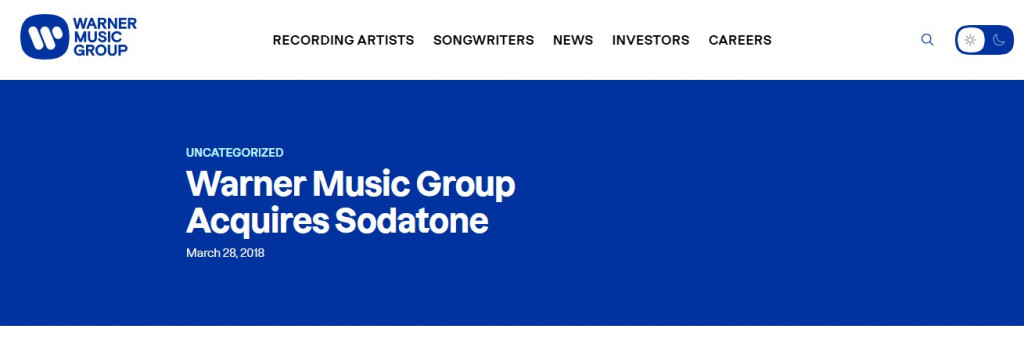

Warner Music Group with Sodatone – The collaboration between WMG and Sodatone took place to harness the power of AI to find new talent in the industry. It depends on the analysis of social data and streaming values to predict the next big artist.
Asaii – This tool is acquired by Apple, which utilizes AI to scour data from social media platforms and online music streaming platforms to find the soon-to-be popular artists.
-
Virtual Artists and Voice Synthesis
The benefits of AI have also paved the way for virtual artists who are capable of providing musical performances without the requirements of human intervention. By utilizing voice synthesis technology, there are now virtual artists who can sing in various styles and languages. Such musical creations are global and gain the attention of music lovers from around the world. The creation of virtual artists raises a lot of ethical questions regarding artist integrity and human emotions, but also provides a different dimension of music-making for people who do not become celebrities on a world tour.
Some Examples:


Image: [cfm.miku] via FacebookA-Soul by Tencent Music – This is a virtual girl group where each member of the group has their own voice and personality. These AI-generated characters can easily replicate K-pop groups.
Hatsune Miku – This is specially designed Vocaloid software where the voice synthesizer can perform like a pop star in Japan. It is a synthesized voice that can sing based on any lyrics typed into it.
-
Automatic Copyright Detection
Copyright laws are highly important in the music industry, where you can easily get sued for copying someone else’s music. AI tools can help to scan multiple platforms at the same time and can easily identify instances of unauthorized music usage or copyright infringement. This is highly important in this digital age of online music, where your music needs to be lawfully established across the competitive digital landscape that is vast and dynamic.
Some Examples:
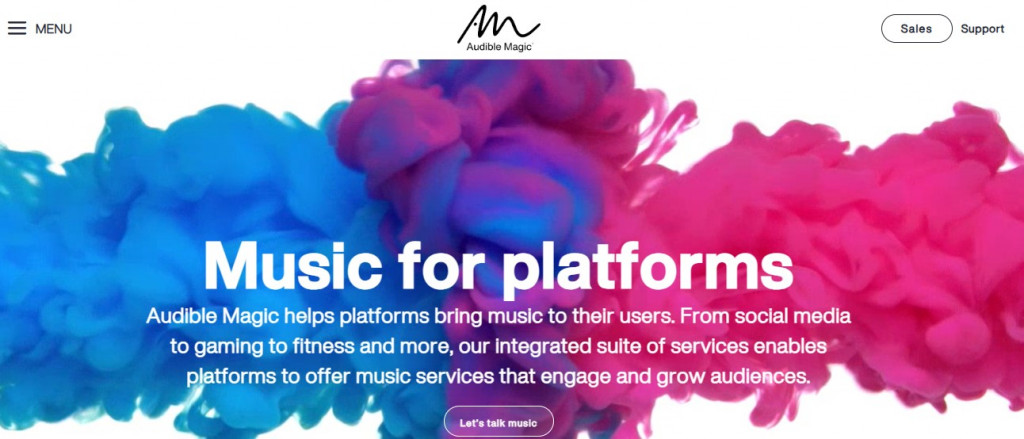

Audible Magic – This is an AI-powered tool that can easily identify copyrighted music through content provided on social media, streaming services, and broadcasters for authentic distribution of royalties.
YouTube’s ID – YouTube content ID utilizes advanced algorithms to detect copyrighted music automatically when it is uploaded via other videos. It helps to enforce copyright rules online.
-
Music Education and Training Programs
AI is widely used in the education and learning sectors, and that goes for music as well. There are many online platforms that can provide real-time feedback and creative lessons to empower learners rapidly. The tools can provide learning lessons on playing instruments, singing, rapping, and other aspects that allow treating music as a potential career choice. The tailored approach offered by AI is making music learning more efficient, effective, and impactful while making it more accessible for the new age of music artists.
Some Examples:
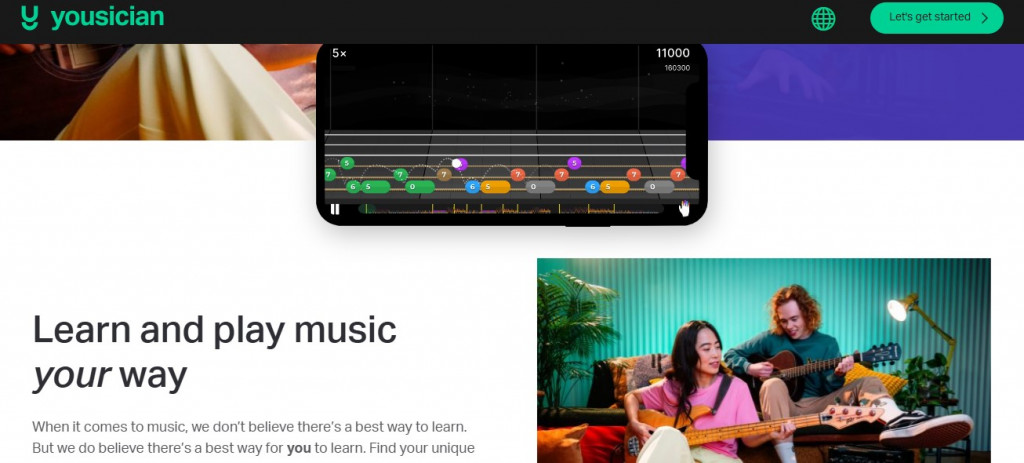

Flowkey – This platform offers real-time feedback and curated courses for piano learning. The tool listens when the artist plays and then guides with effective suggestions to help them improve rapidly.
Yousician – It is a highly interactive AI tool that provides real-time feedback to the learners based on their speed and accuracy of learning. Therefore, it can provide personalized learning lessons for music.
-
Improved and Engaging Live Performances
The modern world of music lovers is highly influenced by the concert culture, and almost all kinds of music lovers like to enjoy live gigs and concerts for the real experience. This experience is now being heightened with the influence of AI. Modern tools are being used to analyze the acoustics of a venue in real-time, and they can help to generate optimal audio quality. AI is being used to control and manipulate lights and visuals at live concerts, offering audiences an engaging sensory experience. AI is bringing more ease in complex show designs while pushing the boundaries for live performance art. Such an immersive experience is also the reason why most world tours have sold-out shows for each day.
Some Examples:
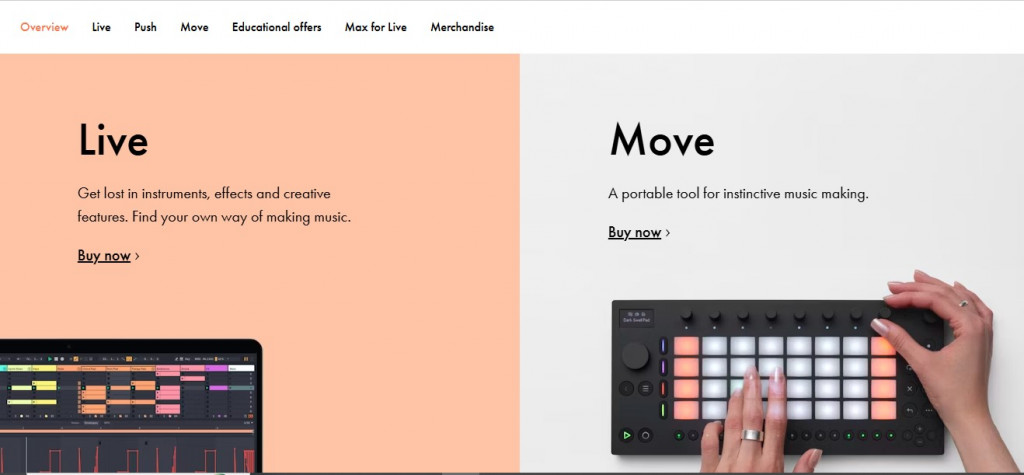

Ableton Live 11 – The tool can utilize machine learning for adjusting tempo based on the incoming tempo occurring from the live performance. It offers great sound quality with an immersive experience, with absolutely zero room for error. In a nutshell, it is perfect for live performances.
TheWaveVR – This AI-powered tool can help transform live performances into interactive and immersive musical experiences for a larger number of audiences with mind-blowing visuals.
-
Ethical Considerations and Creative Implications
The rise of AI in the music industry also comes with a fair amount of creative and ethical challenges, as people can easily copy someone else with AI tools like deep fakes. As a result, questions are being raised regarding the authenticity of AI-generated content and whether it can replace human artists and their creative values in the market. With long hours of debates and discussions, AIs are being modified to maintain human artistic integrity.
Some Examples:
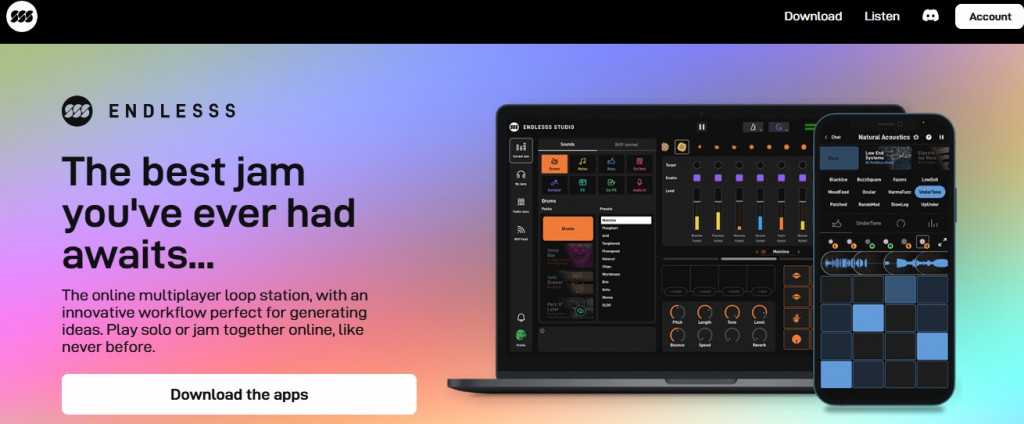

Endless – It is a collaborative music-making app that utilizes AI for live jam sessions. It can help to promote live sessions on the internet while extending boundaries for creative collaboration and copyright.
Spawn by Holly Herndon – This AI tool is specially designed with Herndon’s voice to perform live. However, Hedron is a real artist thriving in the industry and is currently 45 years old.
Concluding Thoughts
The transformative impact of AI in the music industry is undeniably high, and it is also bringing a huge change in the business landscape for music. The artists and the industry need to adapt with AI tools while keeping the ethical considerations and challenges in mind. AI should be used for assistance in various tasks of music making and publishing it without compromising human creativity.
Check out For More News Updates on Google News.















